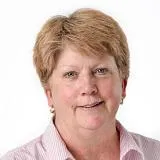The success of this project has been underpinned by the amalgamation of existing partnerships between stroke researchers in the UK, King’s Sierra Leone Partnership, COMAHS, the dedicated staff at Connaught Hospital and the stroke survivors and their families. Many individuals have worked exceptionally hard to deliver the study and we hope to attract further funding to bring sustainable improvement to the people experiencing stroke in Sierra Leone.
Professor Catherine Sackley, Principle Investigator, SISLE
30 September 2021
King's establishes largest stroke register in Sub-Saharan Africa
The Stroke in Sierra Leone (SISLE) research group has established a stroke register that provides local stroke risk and outcome data, essential to inform the development of stroke services in Sierra Leone.

King’s College London, in partnership with the College of Medicine and Allied Health Sciences (COMAHS) at the University of Sierra Leone, the Universities of Glasgow and Central Lancashire and Guy’s and St Thomas’ NHS Foundation Trust, has established a stroke register in Sierra Leone, which is now the largest of its kind in Sub-Saharan Africa with over 1000 patients registered. The register is part of the Stroke in Sierra Leone (SISLE) research project, funded by the National Institute for Health Research (NIHR) which aims to improve outcomes for stroke patients in Sierra Leone.
Stroke is the second leading cause of adult death in Africa, and local stroke risk and stroke outcome data is essential to inform the development of stroke services. Yet limited studies in Sub-Saharan Africa mean the understanding of who is suffering from stroke, the outcomes after stroke, and the quality of care patients receive, is incomplete.
The stroke register, established in the principal teaching hospital in the capital, Freetown provides vital data on the hospital pathway for people in Sierra Leone who have a stroke, and how stroke affects them and their families.
A stroke survivors’ community group has been established as a platform for dialogue and decision-making between services users, service providers and the research team to inform SISLE’s research; but it also serves as a peer support group for stroke survivors who meet on a monthly basis. The group is led by service users and has recently achieved local NGO status, sustaining it beyond the life of SISLE.
As a result of the SISLE research project, stroke is now for the first time, a key focus in the national Non-Communicable Disease Strategic Plan 2021-2025. The new plan focuses on preventing stroke and supporting the implementation of stroke unit care in Freetown and across the country.
Read the full research study here: A Prospective Stroke Register in Sierra Leone: Demographics, Stroke Type, Stroke Care and Hospital Outcomes

